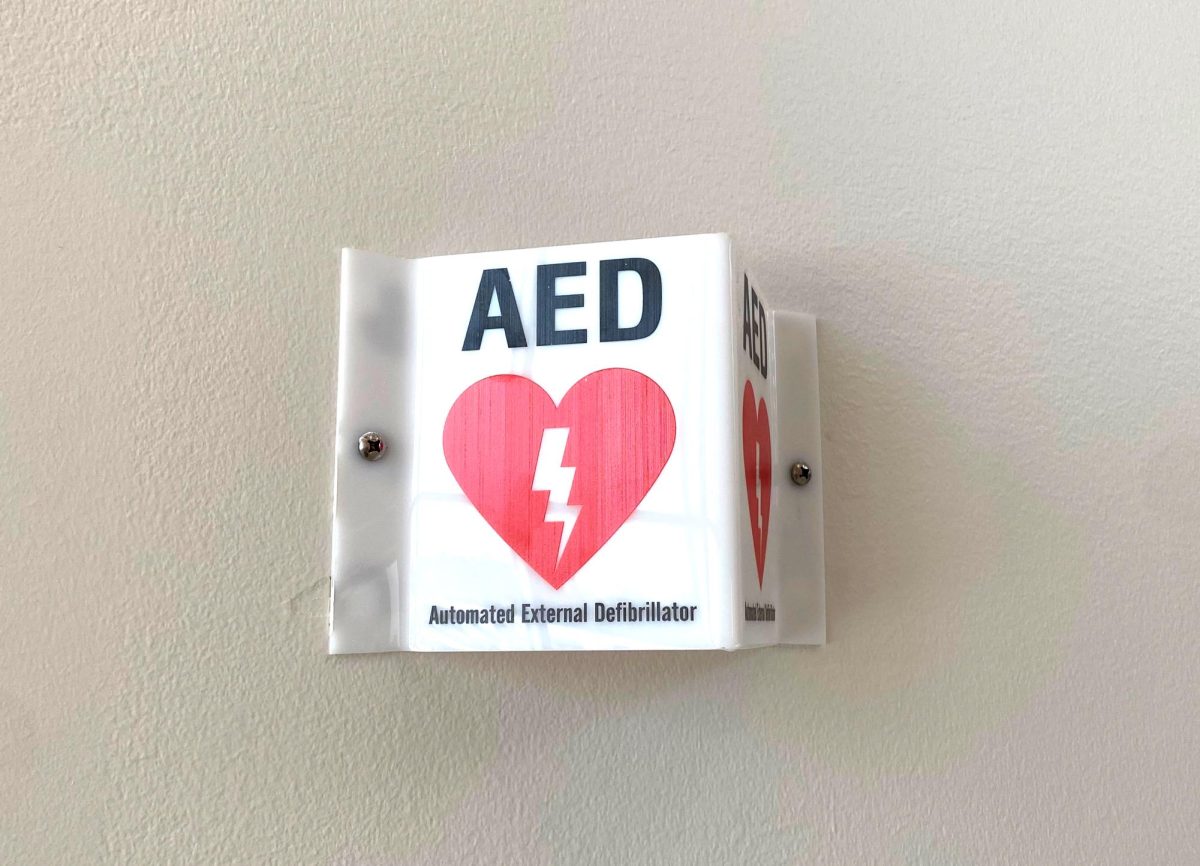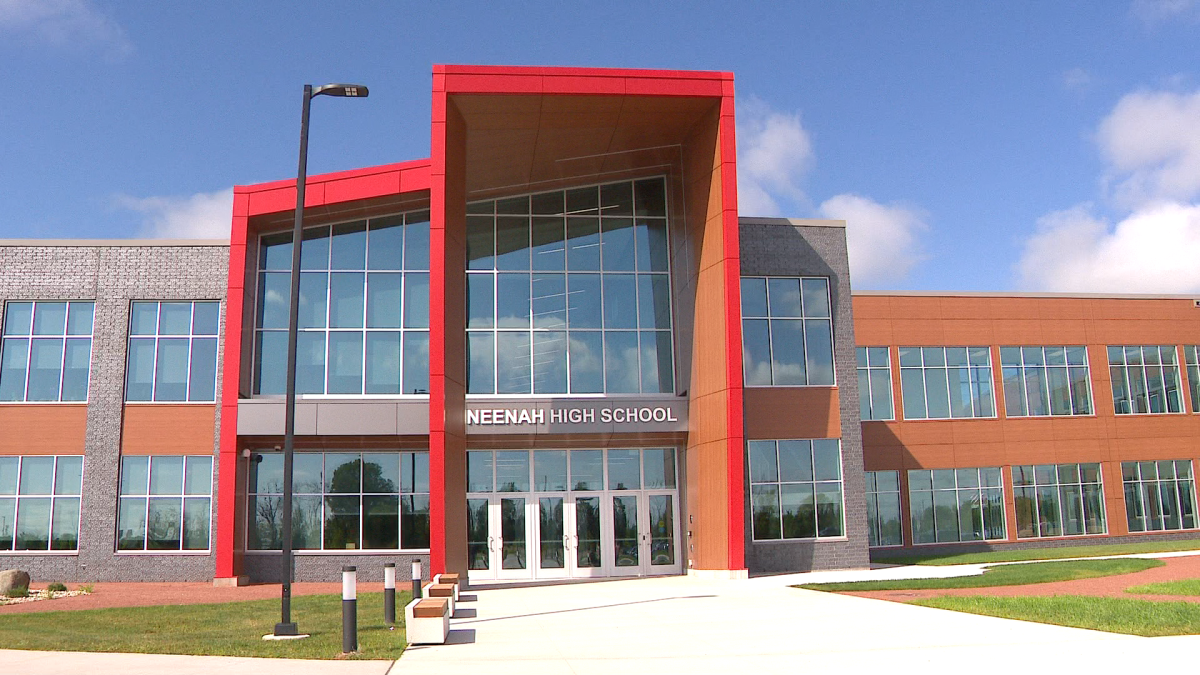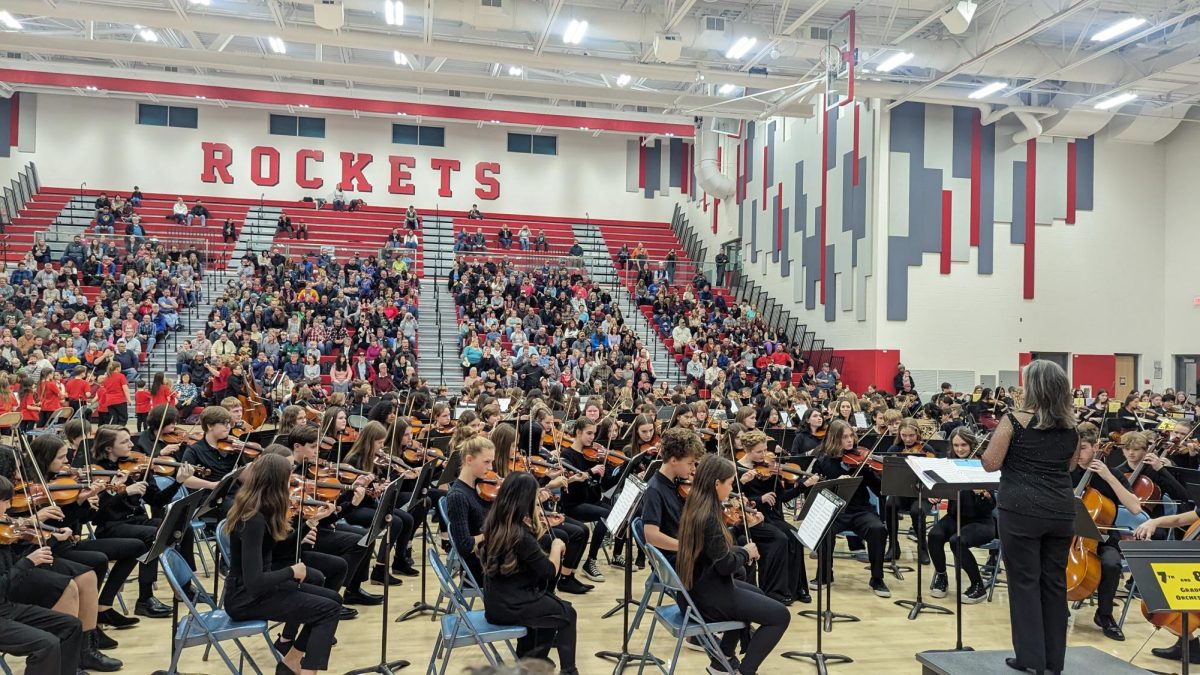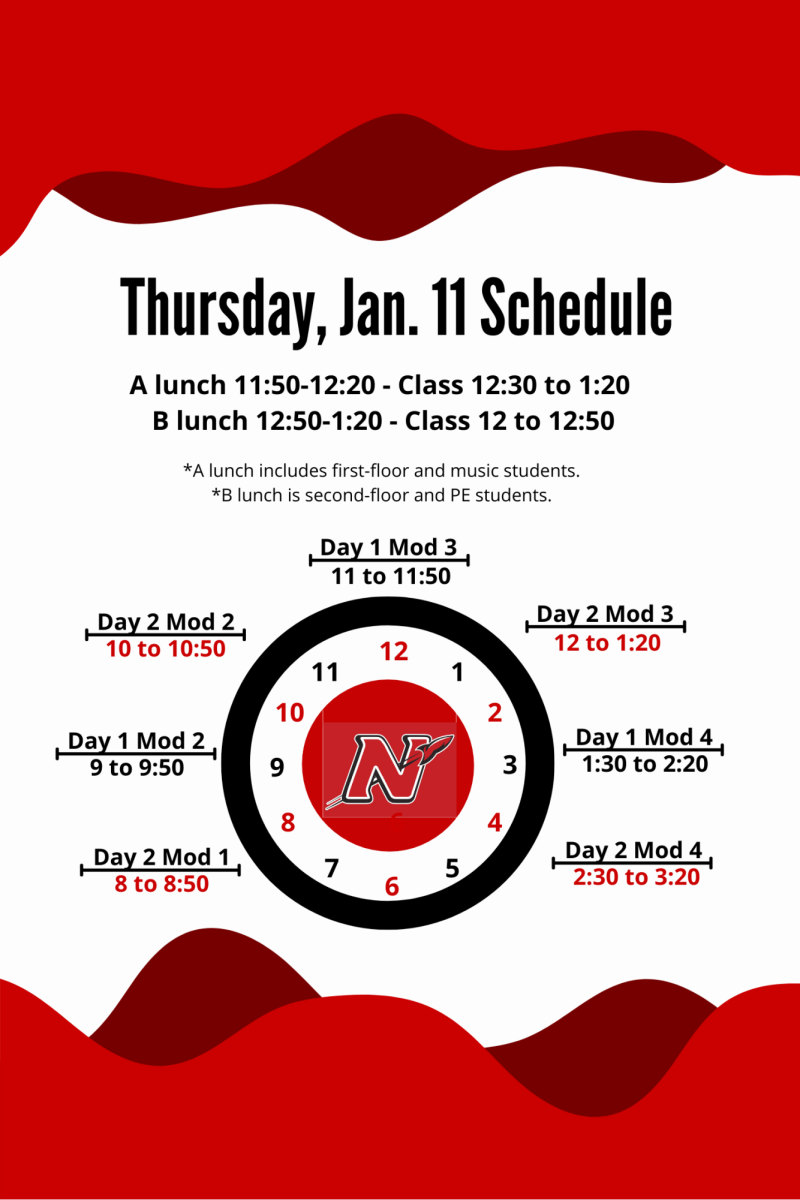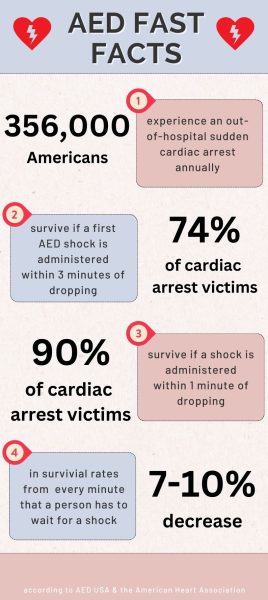 New automatic external defibrillators (AEDs) were placed outside of Neenah High School in September, following plans to expand health measures for students and staff, before being relocated for the winter.
New automatic external defibrillators (AEDs) were placed outside of Neenah High School in September, following plans to expand health measures for students and staff, before being relocated for the winter.
“We want everyone to feel safe during emergency situations,” Alyssa Mason, registered nurse of Neenah Joint School District, said.
Mason goes on to explain how AEDS are medical devices that analyze heart rhythms and deliver electric shocks to restore heart rhythms if someone is experiencing sudden cardiac arrest. Sudden cardiac arrest is a life-threatening medical emergency where there is a sudden loss of all heart function.
These devices are made to be accessible for anyone to use during an emergency situation. All someone has to do is pick it up, hit the power button and from there the device will direct the user step-by-step through the process of administering shocks.
Currently, 12 AEDS total are at NHS. Recently, three new AEDs were added outside of the building on Oct. 27. Two of these devices are on the concession stands near the football field and the third is on an outdoors maintenance building.
With cold weather conditions and temperatures below freezing, the three outdoor AEDs were taken back inside on Oct. 27 after a home football game. Since these devices cannot withstand temperatures below 32 or above 122 degrees, they have been pulled inside until the spring when temperatures become warm enough.
Of the remaining AEDs, eight of them are kept inside of the building and one of them is with the athletic trainer at all times in case of an emergency. There is at least one on every floor level and area of the building, Heather Epley, a registered nurse of NJSD, said.
AEDs must be in easily accessible areas so that one can be obtained no matter where someone is in the building. If a person drops to the ground, shocks must be administered within three minutes or less. If shocks are administered within that time frame, the chances of survival are significantly higher, Epley explained.
All 12 of these AEDs are new models that were introduced to the school in May, Epley and Mason continued. Previous AEDs were outdated, so the three registered nurses of the school district pushed to get them replaced. After a lengthy process caused by the COVID-19 pandemic, the district received new ZOLL AEDs. Commonly used in Gold Cross Ambulances, ZOLL AEDs are top-notch devices.
As for the future of health and safety at NHS, Epley and Mason explained how they plan to get a fourth AED implemented outside once weather conditions allow, and how they aim to get all schools in the district Project ADAM certified.
Verified by the organization, Project ADAM is Wisconsin-based and was established in 1999 after 17-year-old Adam Lemel collapsed while playing basketball and died because of sudden cardiac arrest. The project works to educate and implement life-saving programs to prevent sudden cardiac arrest in children and teens. Epley and Mason plan to get all of the schools in the district Project ADAM certified by providing additional training and emergency drills for staff, and continuing to educate everyone on sudden cardiac arrest.
For more information, Epley and Mason suggest checking out projectadam.com, or to check out the American Heart Association for more life-saving tips.


